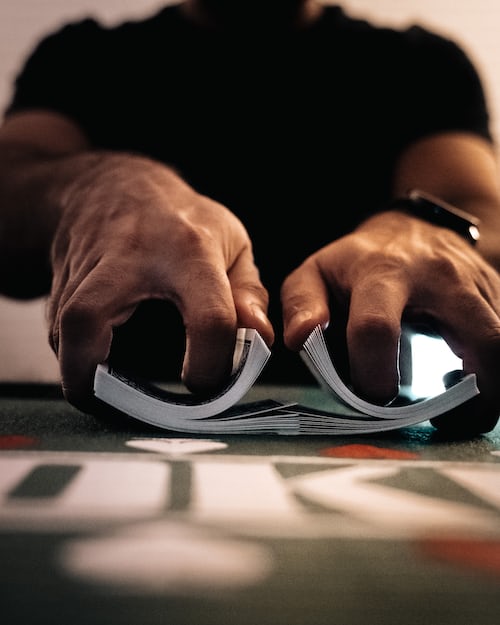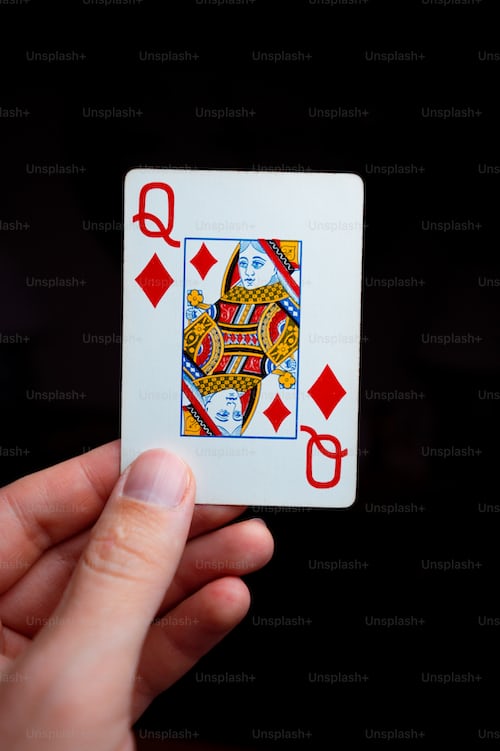While honing your poker skills is important, a solid mental game is essential to being a successful poker player. That means embracing challenges without losing your composure or sight of the big picture.
It may seem simple at first glance, but mastering the mental game of poker requires proper knowledge. To help you do that, we’ve compiled the keys to help your mind stay strong in various poker-related matters.

The Right Expectations
It can be very easy to get too caught up in the idea that you are going to win every hand or that you are going to make your opponent fold every time they face your raise, but this kind of thinking is not productive and will lead to disappointment. Instead, focus on playing your best and making decisions that align with each situation’s odds and expected values.
That applies to what happens in the game and your long-term poker journey. For example, expecting you will win big with each session can prevent you from making smart decisions and lead to costly mistakes. Instead, focus on improving your game and understanding the poker strategies employed by successful players; this will make it more likely to make good calls every step of the way.
Accepting Odds as Part of the Game
Call it odds, luck, or variance – no matter how you look at it, you must accept that some aspects of playing poker are outside your control. Making the best decisions can help mitigate or eliminate luck factors in some rare cases, but you will still be at the mercy of the cards. Realizing this and accepting it will help give you perspective when things don’t always turn out as planned.
Aside from the cards, another chance-based aspect of the game is the opponents you could match up with. You have no control over who you come up against, their strategies, and the style of play they adopt. However, rather than fear facing strong competition, use this as an opportunity to test your skills and improve.
It’s also important to understand that while your luck will eventually improve after a bad streak, there is no way to know when it will happen. That means you shouldn’t try to chase your losses when the odds aren’t in your favor. You’re better off trying again at another time instead of trying to force a win.

Setting The Right Goals
Having the right goals is also important for having a strong mental game in poker. Taking on too many goals at once can be overwhelming and lead to frustration, so it’s important to break them down into smaller, more manageable goals.
Additionally, focusing on the process instead of simply striving for results can help keep your motivation high and reduce stress. For example, you’re learning to read your opponent’s tells. Rather than be too excited about how this particular skill will benefit your game, you should find satisfaction in learning and understanding what each tell means. Eventually, this skill set will help you to make more informed decisions and reach your goals.
Aside from setting the right goals, you must also learn to remember them while playing. After all, it’s very possible to forget them in the heat of the moment. For example, if your goal is to build your bankroll, it can be difficult to remember if you suddenly feel like you must chase losses.
Positive Self-Talk
It can be easy to beat yourself up after losing a big pot or make excuses for your opponents being luckier than you. But instead of engaging in negative self-talk, focus on the positives and what you can learn from each situation. Celebrate small wins, stay confident, and remind yourself that it is all part of the game.
At the same time, you should remember that positivity doesn’t mean blind optimism. Acknowledge bad beats when they happen, stay humble, and be realistic about the situation. Doing so will help you control your emotions and make better decisions at the poker table.

Practicing Mindfulness
This particular type of meditation has many applications, including poker. And in the game, that means staying on the poker hands you’ve chosen to play without letting your thoughts wander. Doing so will help you make better decisions and reduce stress during the game, improving your performance. Some simple techniques can help you practice mindfulness while playing, such as taking deep breaths or counting your chips.
Mindfulness also means focusing on the present rather than being too concerned with future possibilities. It may seem counterintuitive because predicting what the opponent will do next is an unavoidable part of poker, but mindfulness isn’t about not trying to guess what could happen.
Instead, it’s about avoiding distractions caused by being too fixated on the future. After all, figuring out everything that could go wrong or being too sure about a particular outcome could take away your attention from what’s happening in the present. It can also cloud your judgment. Rather than fall into either trap, you’re better off making a few intelligent guesses and playing in the now.
Have the Right Poker State of Mind
By setting the right goals, engaging in positive self-talk, practicing mindfulness, and learning to accept the randomness of each hand, you can improve your game and ultimately win more mental games. Doing those things, however, is easier said than done. Nevertheless, through constant practice and learning from your mistakes, you can develop these keys that will level up your mental game.

